Breaking Down Barriers in the Community-Based System of Care A Call to Action
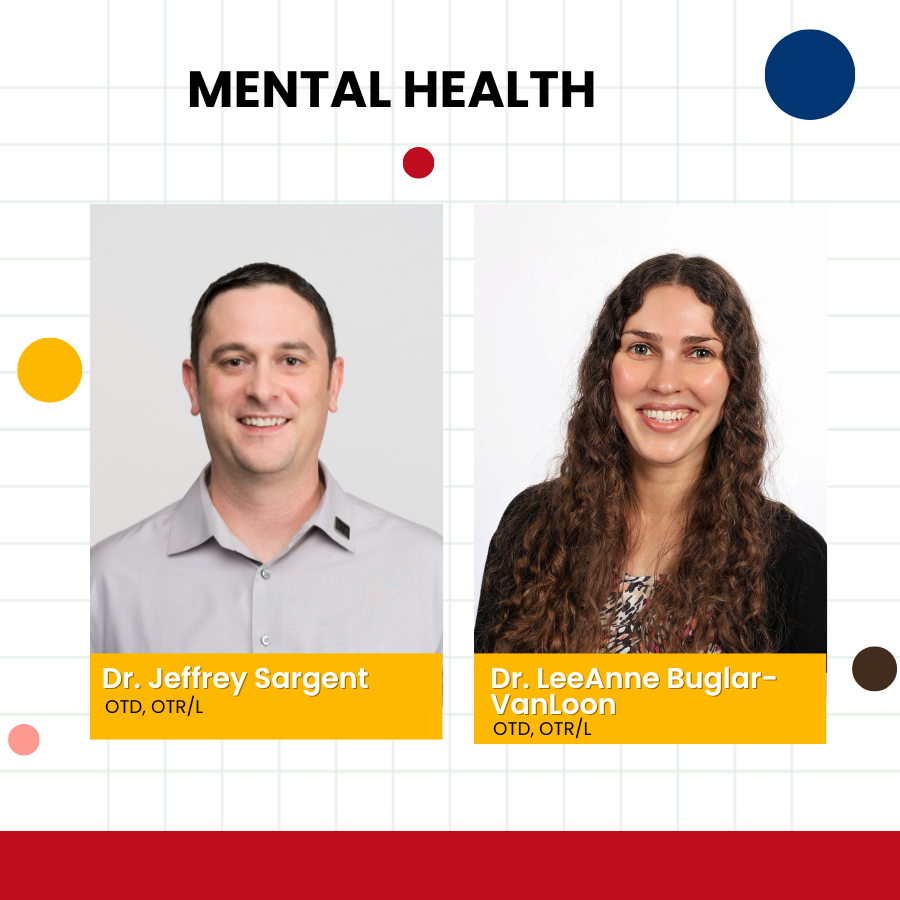 Breaking Down Barriers in the Community-Based System of Care A Call to Action
Breaking Down Barriers in the Community-Based System of Care A Call to Action
Dr. Jeffrey Sargent OTD, OTR/L
 Breaking Down Barriers in the Community-Based System of Care A Call to Action
Breaking Down Barriers in the Community-Based System of Care A Call to Action
Dr. Jeffrey Sargent OTD, OTR/L
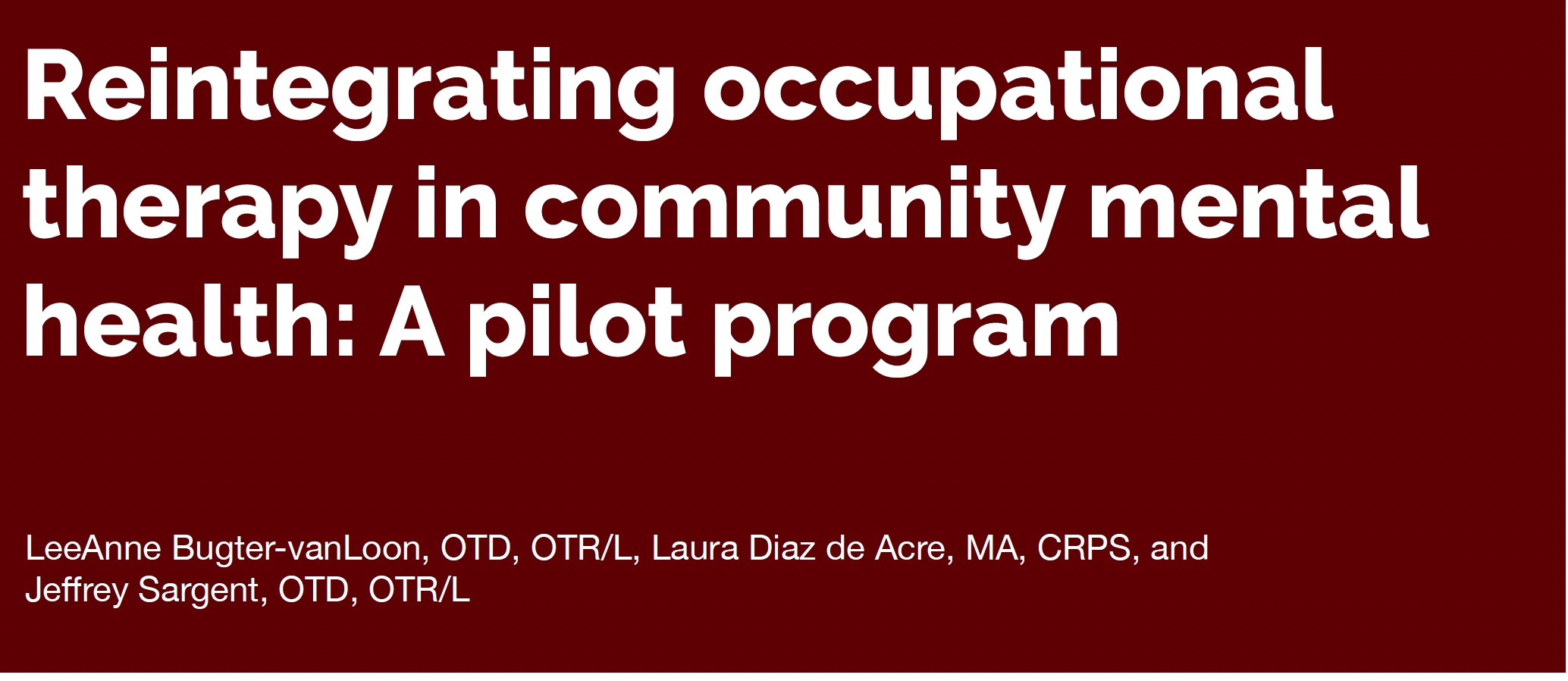
Current community-based mental health services in the state of Florida are sparse and focused on targeted areas, such as medication management, psychiatric services, trauma-based support groups, and day programming. Few programs or services facilitate community re-integration, and those that do, rely mainly on peer support services. The current continuum of care is not always able to account for the far-reaching effects of mental health and substance abuse issues and how they create obstacles to daily living and community participation. In Florida, mental health, substance abuse, and co-occurring disorder programs are under strain from a lack of funding. According to the State of Florida Appropriations Committee 2021 Annual Budget, only 7% of the allotted 3.8 billion dollars of funding to the Department of Children and Families is designated for community mental health and substance abuse services (The Florida Senate, 2022). These funds must stretch across all the programs and other related services. Funding for occupational therapy services is largely non-existent in these programs, despite a long history of treating this population. Occupational therapists (OTs) receive specialized education and clinical training to address areas within the continuum of community reintegration for clients experiencing mental health and co-occurring disorders. OTs can apply theory and conceptual models of practice stemming from a rich occupational science history to enable successful improvements in occupational participation and performance.
by: Anette Bullard, MEd, COTA/L and Anjali Parti, OTD, OTR/L
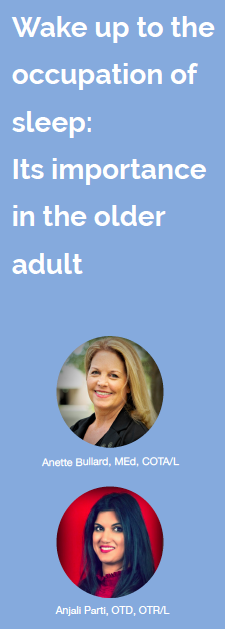 Everyone has experienced having to power through the day after a night of not sleeping well with every aspect of the day feeling more challenging due to your lack of sleep. The National Institute of Health (2017) identifies sleep as one of the most important occupations for maintaining all aspects of health. In fact, the Centers for Disease Control and Prevention (2018) has recognized sleep deprivation as a public health problem with broad, negative effects on safe occupational performance. For the older adults the challenges brought on by age compounded with a lack of sleep can further decrease successful occupational performance. Many age-related changes tend to disturb patterns of sleep and the myth that older adults need less sleep is actually incorrect (Suni, 2022b). The older adult is confronted with additional sleep obstacles such as, chronic conditions, medications, diminished physical activity, and decreased cognitive exercise, all of which have all been associated with decreases in sleep satisfaction. The resulting downward spiral of poor sleep results in less successful occupational engagement. The Occupational Therapy Practice Framework includes ‘rest and sleep’ as an area of occupation and defining occupational therapy practitioners as qualified professionals to assist clients with the occupation of rest and sleep (American Occupational Therapy Association, 2020). This brief article seeks to assist practitioners with identifying resources and awareness for more consistently addressing the occupation of sleep in the older adults.
Everyone has experienced having to power through the day after a night of not sleeping well with every aspect of the day feeling more challenging due to your lack of sleep. The National Institute of Health (2017) identifies sleep as one of the most important occupations for maintaining all aspects of health. In fact, the Centers for Disease Control and Prevention (2018) has recognized sleep deprivation as a public health problem with broad, negative effects on safe occupational performance. For the older adults the challenges brought on by age compounded with a lack of sleep can further decrease successful occupational performance. Many age-related changes tend to disturb patterns of sleep and the myth that older adults need less sleep is actually incorrect (Suni, 2022b). The older adult is confronted with additional sleep obstacles such as, chronic conditions, medications, diminished physical activity, and decreased cognitive exercise, all of which have all been associated with decreases in sleep satisfaction. The resulting downward spiral of poor sleep results in less successful occupational engagement. The Occupational Therapy Practice Framework includes ‘rest and sleep’ as an area of occupation and defining occupational therapy practitioners as qualified professionals to assist clients with the occupation of rest and sleep (American Occupational Therapy Association, 2020). This brief article seeks to assist practitioners with identifying resources and awareness for more consistently addressing the occupation of sleep in the older adults.
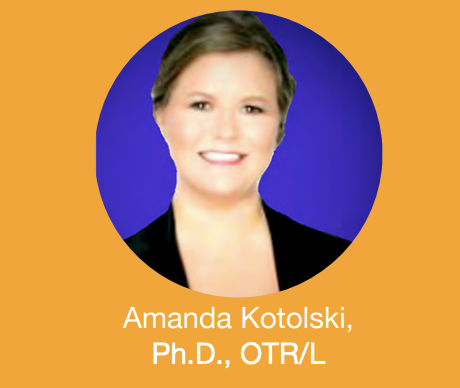
Since March 2020 the world has continued to evolve and change to meet the restrictions and demands of what is known as COVID-19. Twenty-one months later we continue to track outbreaks and attempt to prevent the spread through handwashing, masking, and social distancing, as well as develop treatments that are scientific and alternative. Both healthcare workers, including occupational therapists, and clients are experiencing difficulties in the areas of occupations of work, self-care, and leisure due to COVID-19 and the associated restrictions (Sithong, 2021). However, with states lifting restrictions, clients and practitioners are hoping to return to their pre-pandemic lives despite the occupational imbalances and hardships they have undergone.
by: Anjali K. Parti, OTD, OTR/L
Mental Health Special Interest Section FOTA
As you are all aware, the United States along with the global community is experiencing a period of social isolation, disengagement, social distancing, heightened public health precautions, and an overall sense of change in ‘normal’ due to a novel strain of the Coronavirus, COVID-19. Several countries are experiencing new social realities and limitations in order to prevent retrieving or spreading the virus. All Americans are encouraged to self-quarantine and limit exposure to gatherings or environments of a quantity of 10 or less people and implement 6-foot distance between one another. In short, Americans are discouraged from leaving their homes if possible. This is a significant societal shift which can yield many challenges to routine, personal and professional growth, emotional regulation, wellness, mental health, coping strategies stemming from a general feeling of ‘cabin fever’.
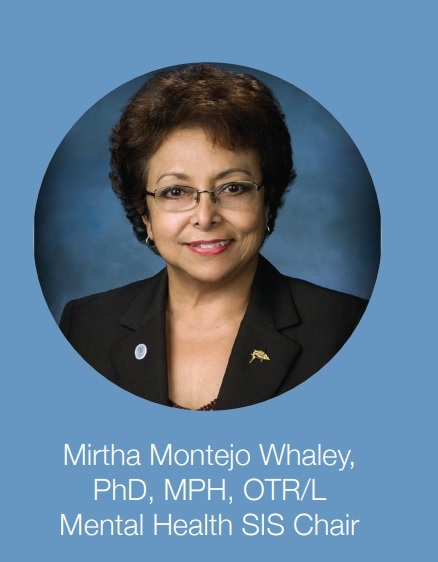
Trauma is widespread and has profound effects that can lead to emotional and physical distress throughout the lifespan. Statistics from the Center for Disease Control and Prevention (CDC) on abuse and violence in the United States indicate the following:
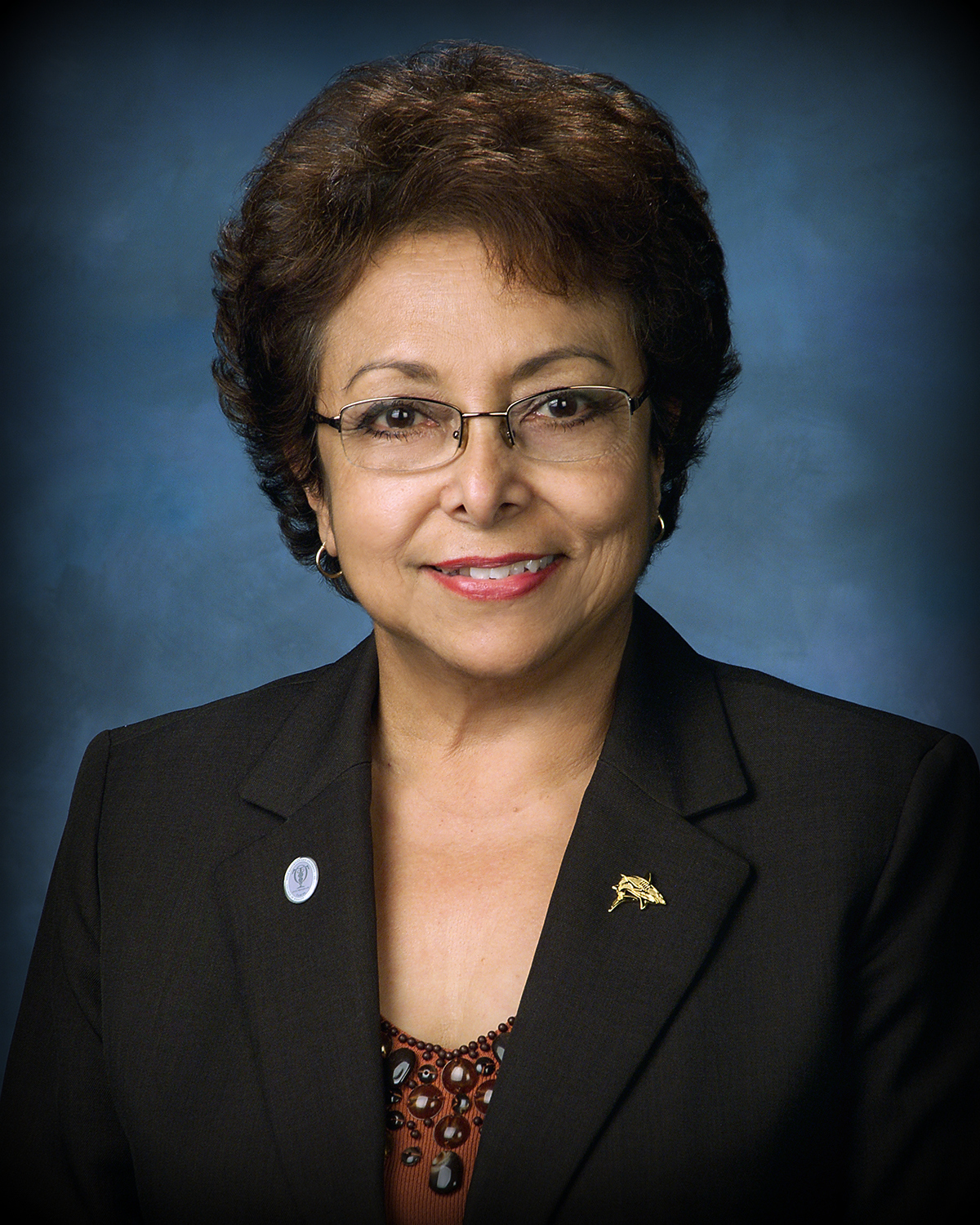
Mirtha M. Whaley, PhD, MPH, OTR/L, SIS Chair, Mental Health

Anjali K. Parti, OTD, OTR/L Gerontology Co-Chair Annette Bullard, COTA, Gerontology Co-Chair
At the Florida Occupational Therapy Association (FOTA) conference in 2018, Anjali Parti and Annette Bullard hosted a Conversations that Matter that was very well attended, many OT practitioners voiced an interest in doing more for mental health in the VA setting. We have decided to re-visit this important topic due to President Trump’s recent Executive Order signed March 5, 2019. Here is some information on the order and what the order entails:
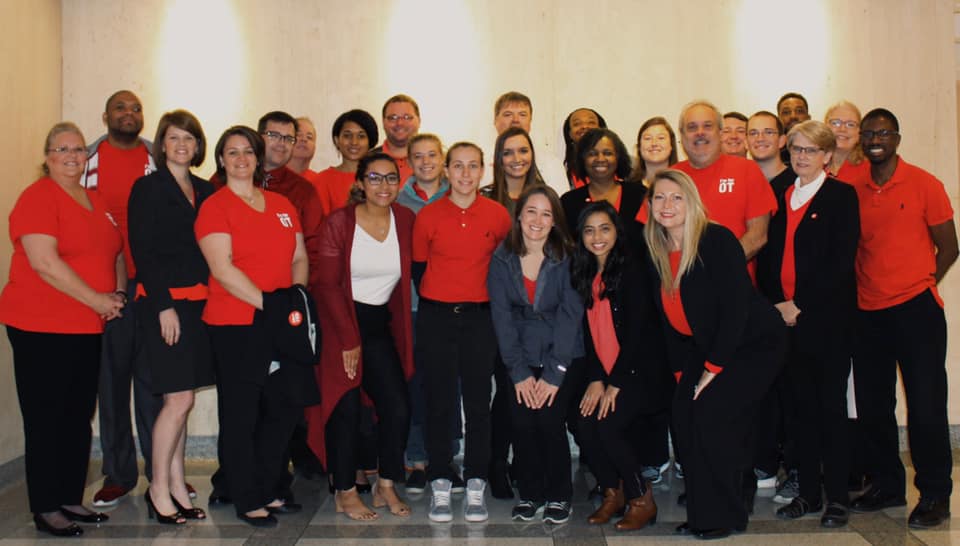

The FOTA Governmental Affairs Co-Chairs, President, our Lobby Firm--Corcoran & Johnston, and Members had 16 different legislators and their staff over the course of a full-day schedule. We discussed issues important to the practice of OT and the service to our clients over several talking points including the Opioid Crisis, Pain Management, Mental Health in Schools, Medicaid, and Telehealth Practice. Our meeting included leaders on important health policy, and human services committees. We thank them for a receptive discussion about OT in FL. I have included some pics of my hand-held schedule and talking points from the day of meetings.
Join the FOTA leadership and membership in acknowledging National Children's Mental Health Day, May 10th, 2018. In service of our FOTA vision to be the respected authority on occupational therapy’s contribution to health and well-being in Florida, we have assembled a humble offering of clinician's resources and supportive information for OTs from across the state to use in service to children's mental health. Our Ad Hoc Committee on School Mental Health is developing further programming to offer to our members in the future, and we are developing policy statements to share with our advocacy team and our Florida legislators.
FOTA believes in the potential for OT practitioners to impact child well being and provide new and innovative programs to meet the needs of our students in schools across Florida. We believe in the preventative model, nurturing social and emotional learning, and skills for emotional regulation, social skills, and collaborative learning -- all through occupation-based activities. Please take time today, and everyday to nurture the wellness of children in your life and in your practice. See our resources below --an assemblage that is still a work in development. Take Care!
From The President: Spring FOCUS 2018
Hello FOTA Members! And welcome visitors to the blog, we hope you join us in FOTA, as an OT You Belong!
Amazon searches starting from www.flota.org benefit FOTA!